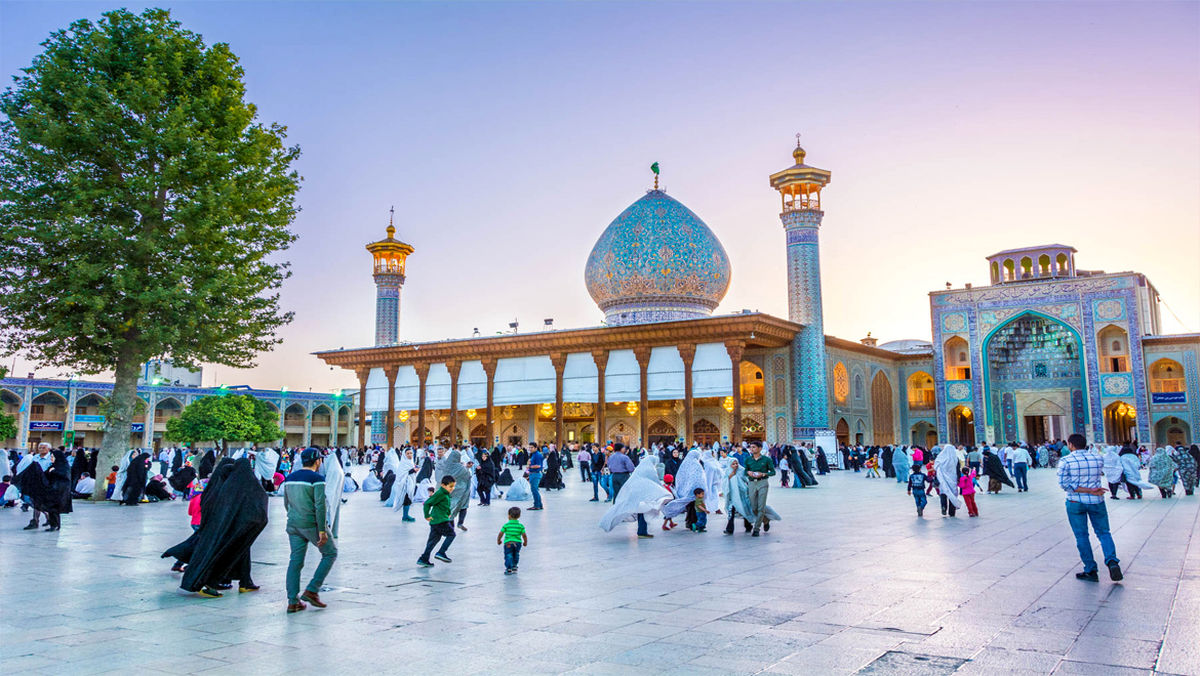On Wednesday evening, an armed terrorist shot at the pilgrims after entering the Shahcheragh Shrine in Shiraz, during which 15 people were martyred and 20 others were injured. Fars province's deputy security chief announced that the terrorist was a 30-year-old Bahraini man who entered the shrine with an assault rifle and carried out his operation alone and shot about 60 bullets at every person he saw in front of him. This terrorist was targeted and wounded by the security forces shortly later.
ISIS terrorist group claimed responsibility for the attack. The terrorist group had attacked the Imam Khomeini mausoleum and parliament building in the capital in on June 2017.
World condemnations of terrorist attack
The attack drew international reactions.
Russian President Vladimir Putin sent a message of condolence to his Iranian counterpart Seyyed Ebrahim Raisi following the attack, announcing Russia's readiness to boost cooperation in the fight against terrorism. The UN Secretary General Antonio Guterres strongly condemned the terrorist attack and expressed his sympathy with the people and government of Iran.
Oman's Sultan Haitham bin Tariq condemned the attack and expressed his condolences to Iran.
The spokesman to the Pakistani foreign ministry in a statement condemned
the massacre of the civilians and sympathized with Iran. He said that
Pakistan condemns terrorism in all its forms.
“We strongly condemn the heinous and cruel terrorist attack on the Shia shrine in the city of Shiraz, and we wish God's mercy for the deceased and speedy recovery for the injured,” said Turkish Foreign Minister Mevlüt Cavusoglu in a Twitter post.
Mohammad Ali Al-Houthi, a member of Sana'a-based Supreme Political Council of Yemen, said that the attack unites the Iranians in the face of enemy. He offered condolences to the Leader of Iran Sayed Ali Khamenei and the Iranian nation.
Leader of Iraq's National Wisdom Movement Sayed Ammar al-Hakim in a message condemned the attack.
“We offer our heartfelt condolences to the families of the victims and wish the injured a speedy recovery. Azerbaijan, as a country that has faced terrorism, strongly condemns all forms of terrorism, a statement by Azerbaijan's foreign ministry read.
Armenian Foreign Minister Ararat Mirzoyan was another official to condemn Shiraz crime. “We express our sincere condolences and sympathies to the people and government of Iran following the terrorist attack in Shahcheragh shrine in Shiraz city, which led to the tragic loss of lives of innocent people. We wish the injured a speedy recovery,” his Twitter message read.
Venezuelan foreign ministry released a statement of condemnation, saying that the “Bolivarian Republic of Venezuela, within the framework of peace diplomacy, condemns any form of terrorism posing a serious threat to global security.”
Iraqi resistance groups in a joint message reacted to the attack. Asaib Ahl Al-Haq Secretary-General Qais al-Khazali in his Telegram channel wrote that after the Takfiri terrorists and the arrogant forces following them failed to realize their “sick illusions to control our countries and resistant nations, they have once again turned to their criminal and barbaric nature, attacking the innocent civilians in the holy shrine of Ahmad bin Imam Musa Kazem in Shiraz.... We condemn this dark and criminal Wahhabi action that violates the prohibition of shedding the bloods and attacking the sanctities. We take as responsible for this barbarous massacre the platforms promoting takfiri thought and their supporters and call for the world's religious and international organizations to face provocative attacks on Shiites.”
Wesrern human rights advocates choose silence
While messages of condolence and sympathy from neighbors and friendly countries have been pouring in, European countries and the US that claim to be the true advocates of human rights but actually support the separatist and terrorist organizations, remained silent on Shiraz terrorist attack. In recent weeks, Western countries have accused the Islamic Republic of violating human rights and supported Iran's riots and demanded respect for the rioters' rights. These countries have even issued permission to hold anti-Iranian demonstrations to show that the dimensions of support for Iran's unrest outside the country are wide, in order to increase the media and political propaganda against Tehran.
ISIS terrorist group that claimed to have carried out the attack is nurtured by the West and was formed in 2014 to topple the Syrian government. The ex-US Secretary of State Hillary Clinton once admitted that the terrorist group was founded by them with Arab funding and Turkish support.
Following the Islamic Revolution of 1979 in Iran, attacks by terrorist groups mainly backed and harbored by the Western countries, especially the US and Israel, killed over 17,000 Iranians. The Western human rights groups, however, have not made any practical measures in response, and even leaders of some of these groups live freely in the European countries with official security, financial, and political support from the governments there.
Accusing Iran of meddling in the home affairs of regional states, Israeli and Saudi officials in recent years repeatedly threatened to bring war inside Iran. Sending terrorists to Iran is part of their projects to deal blows to Iran. During the recent riots, Iranian security officials said that they discovered several arms shipments bound for terrorists to destabilize Iran.
Along with conducting armed operations in Iran, they
activated media terrorism against Iran with Saudi-funded London-based
news networks taking the lead for intensely fueling the riots by
publishing apparantly fake news.
/129

